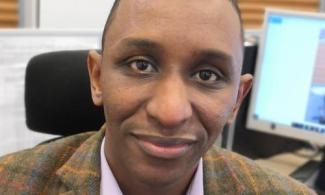
The long term detrimental consequences of El-Rufai's action will not appear until he has long left the State House. God forbid, if the Governor's idea is taken seriously, it will spur an uprising by indigenous peoples across the north in the emirates of Kano, Katsina, Ilorin, Bida, Sokoto, Hadejia, and the rest, to demand a return to pre-1804.
Nigerians are currently counting down to 29 May 2023, the end of a government with a record number of recessions in history. Nigerians are also counting to the start of the trial the wrongfully appointed Emir of Zazzau with the pre-trial hearing set on 11 December 2020.
Particularly, the Nigerian Bar Association are keenly watching the Governor's actions as attempts have been made to frustrate the accelerated hearing of the case. The High court was burgled, the Judge had expressed personal security concerns, the kingmakers are being coerced to select a government attorney, and one of the kingmakers has been suspended.
El-Rufai has been left alone to defend his indefensible repugnant action which has been haunting conscience, and his public rating, as he plans his next political adventure. A public speaker, who was thought to be an advocate of the rule of law, volunteered to improve his dwindling public rating.
Unsurprisingly, the public figure's futile attempt only made the Governor's position worse. The public could vividly recall when lawyers of that public figure called his deposition “illegal and unconstitutional” just a few months ago. The people still remember the public figure's interview to the BBC, in February 2014, when he said he would be challenging his suspension, by the President, to preserve the central bank's independence. The speaker comments on Zazzau emirate demonstrates his lack of credibility, inconsistency, and the inability to keep up with reality.

It was surprising that despite his new unbearing liability for'translating' Islamic books from Arabic to the Hausa language, this public figure could not quote a single line which supports El-Rufai's violation of the law. However, he still claimed it is the Will of God for the Governor to violate the law and appoint the Emir, and even made implicit threats. The Will of God is the due process, and the God we worship does not side with the oppressors.
As a direct beneficiary, this public figure came up short when he attempted to justify the rotation within the Zazzaudynasties. His father did not pay homage to the new Emir of Kano in 1963 who is from dynasty with him, because he lost the contest. The public speaker is well-versed with lack of rotation, and he supports it when it is in his interest. Where were his speaking skills when the rotation stopped in Kano for almost 200 years? Instead, he contested and won through the selection of kingmakers. Where were his public speaking skills when Katsina stopped rotation for over 100 years?
For obvious evidence, the Clan of Mundubawa and Dallazawaare the respective Danfodio's flagbearer for Kano and Katsina. The former has not ruled for about 200 years, while the latter for over 100 years. Nonetheless, the clans are still serving their respective emirate councils. The point here is that rotation is not part of the customs of some emirates in northern Nigeria.
Despite reading a couple of books, the Governor still demonstrates the lack of understanding of the political system, and the political relations, that govern a multi-dynastic emirate like Zazzau. The dynastic contest for the throne had never been rotational, and it had never been reserved to be an exclusive right of a particular dynasty to claim it at any moment. He tried to justify his appointment to make it look like he is saving a dynasty facing an existential threat while ignoring those who have been completely marginalised like the Habe's and the Sullubawa's.
Suppose the Governor's goal was trade-off competence to compensate for the injustices against Emir Alu Dan-Sidi truly. Why did he overlook his only living grandson, one of the eleven contenders? Alhaji Saidu Mailafiya, Ciroman Zazzau, the former District Head of Kubau, is the son of MadakiSa'idu, and his father is the first son of Emir Alu Dan-Sidi. According to the kingmakers’ Statement of Oath submitted to Kaduna State High Court, he ranked 8th after scoring 57% in their assessment, which is not far off the Governor's choice, who was ranked 7th and scored 62%. Thus, the Governor’saction has exposed his inability, as a leader, to make an optimal decision, to choose between competency and fairness.
In the short term, the controversy has made created the Zazzau emirate become a political playhouse for the next government, which makes the removal of an Emir very easy as it will not be challenged. El-Rufai has set bad precedence as more Governors will attempt to copy this bad behaviour if left unchallenged. An action thought to be a one-off will potentially become a permanent policy.
The long term detrimental consequences of El-Rufai's action will not appear until he has long left the State House. God forbid, if the Governor's idea is taken seriously, it will spur an uprising by indigenous peoples across the north in the emirates of Kano, Katsina, Ilorin, Bida, Sokoto, Hadejia, and the rest, to demand a return to pre-1804. Suppose the statement of the Governor is taken literally. In that case, it could lead to a breakdown of a working system, which could spur the unimaginable crisis in all the emirates of northern Nigeria. As traditional institutions are designed to influence economic development in the country, the lasting effect will include negative economic development. It could also spur national security challenges in an already volatile north.